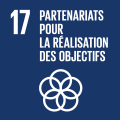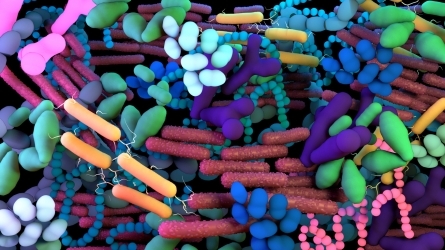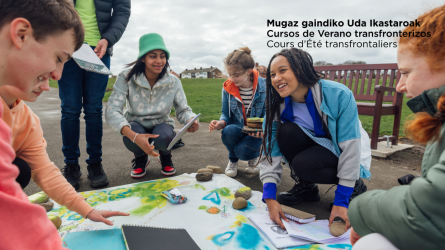
Mugi muga: gazteen nortasun politikoak mugaren bi aldeetan
What influences the shaping of our political identities? And in the process of understanding the nation? Are there differences depending on the sociological context? If you are looking for answers to these and many other questions, join this Summer Course.
Description
At these times of constant changes, this Summer Course aims at discussing why and on what basis young activists with agency build their political and national identity, focusing particularly on activists operating in the Basque Country.
Through lectures by experts in youth studies and political history of the region, the course will explore what say the current researches on the topic and will give the chance to discuss about it too. Thus, the findings of the research conducted by the University of the Basque Country in collaboration with the Basque Country Development Council and with funding from the Provincial Council of Gipuzkoa will be presented.
Finally, there will be a discussion between young activists who are both the subjects of the research and participants in the session, providing an opportunity to talk directly about the elements and conclusions of this course.
Objectives
Analyze the dynamics of youth politicisation.
Understand the structure of nationalist identity in Ipar Euskal Herria (Northern Basque Country).
Activity directed to
- All public
- University student
- Students not from university
- Teachers
- Professionals
Directors
PhD in Sociology, Professor in the Department of Sociology and Social Work at EHU, and a member of the consolidated research group Parte Hartuz. His main research areas include: nationalism, migration, social movements, youth and politics, and citizenship. Principal investigator of the research project "Mugi Muga: Weaving Networks Among Basque Youth" (Ideiak 2024 / Provincial Council of Gipuzkoa). He is co-author of the following publications on the relationship between youth and politics: «Prefigurative politics and sub-state nationalist movements. The case of young Basque-nationalist left activists» (2025), «Ikasketa politikoa, parte-hartzea eta aktibismoa gazteen ahotsetan» (UEU, 2024), «Parte hartu ala paso egin? Gazteen ikasketa politikoak aztergai» (2020), among others.

Jon Azkune Torres
EHU
Professor and researcher at the University of the Basque Country (EHU).
Speakers

Maddi Alberdi San Martin
EHU, Doktoregaia
Predoctoral researcher. Member of the Parte Hartuz research group in the Department of Sociology and Social Work at EHU. I am writing my thesis on nationalism and feminism, thanks to a predoctoral scholarship from the Basque Government. Researcher of the project "Mugi Muga: Weaving Networks Among Basque Youth" (Ideiak 2024 / Provincial Council of Gipuzkoa).

Alaia Cachenaut
A PhD candidate in anthropology and a member of the LISST-CAS team and the UMR Passages laboratory, her research—conducted as part of a CIFRE fellowship with the Basque Cultural Institute—focuses on the issue of cultural rights in the Basque Country, based on the case of the integration of female dancers into the Kaskarot carnival procession in Ustaritz. Researcher of the project "Mugi Muga: Weaving Networks Among Basque Youth" (Ideiak 2024 / Provincial Council of Gipuzkoa).
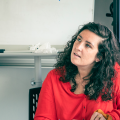
Elena Casiriain Iturriria
Doctoral student in anthropology at the University of Toulouse Jean Jaurès in the LISST-CAS laboratory and at Euskal Herriko Unibertsitatea (Donostia) in the GAIT research group. Cifre contract with the Basque Country Development Council (CDPB). Research projects : - Mugalur project (CDPB / Cederna-Garalur / EHU / NAEN Euroregion) > coordination and researcher - Researcher of the project ‘Basque identities in the 21st century: objective 2050’ project of Eusko Ikaskuntza - Researcher of the project "Mugi Muga: Weaving Networks Among Basque Youth" (Ideiak 2024 / Provincial Council of Gipuzkoa).
PhD in Sociology, Professor in the Department of Sociology and Social Work at EHU, and a member of the consolidated research group Parte Hartuz. His main research areas include: nationalism, migration, social movements, youth and politics, and citizenship. Principal investigator of the research project "Mugi Muga: Weaving Networks Among Basque Youth" (Ideiak 2024 / Provincial Council of Gipuzkoa). He is co-author of the following publications on the relationship between youth and politics: «Prefigurative politics and sub-state nationalist movements. The case of young Basque-nationalist left activists» (2025), «Ikasketa politikoa, parte-hartzea eta aktibismoa gazteen ahotsetan» (UEU, 2024), «Parte hartu ala paso egin? Gazteen ikasketa politikoak aztergai» (2020), among others.
Xabier Itçaina is a CNRS Senior Researcher (DR1) in political sociology at Sciences po Bordeaux (France), former director (01/2017-05/2021) of the Centre Emile Durkheim (UMR5116 CNRS, Sciences po Bordeaux, University of Bordeaux) and a former Marie Curie Fellow at the European University in Florence (2012-2013). His Ph.D (2000) focused onto the links between Catholicism and nationalism in the Basque Country. His research is concerned with three areas: (a) Catholicism and politics (Catholic third sector and territorial welfare, Catholicism and ethnoterritorial conflicts); (b) the territorial dynamics of social economy; (c) political anthropology of identity politics and popular culture in the Basque Country. He has conducted fieldwork in Southern European regions (Basque Country, France, Spain, Italy) and in Mexico.

Ane Larrinaga Renteria
University of the Basque Country (EHU), Associate professor
Ane Larrinaga Renteria holds a PhD in Sociology and Political Science. She is a professor and researcher at the University of the Basque Country (EHU) and is part of the Parte Hartuz research group. Her research interests have included language and culture, ethnicity and nationalism, gender, and political participation. She has published numerous scientific articles and books on these topics.
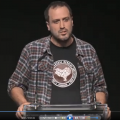
Iñaki Zaldua Calleja
EHU
Working on my PhD thesis under a contract with the Basque Government. Among other topics, I am analysing the structuring of nationalist identities in the peripheral areas of the Basque Country. We have also begun to study artificial intelligence and its impact on the structuring of identities. Researcher of the project "Mugi Muga: Weaving Networks Among Basque Youth" (Ideiak 2024 / Provincial Council of Gipuzkoa)
Registration fees
| Face-to-face | Until 03-07-2025 |
|---|---|
| 0 EUR |
Venue
Aquitaine
Aquitaine
Sustainable development goals
Agenda 2030 is the new international development agenda approved in September 2015 by the United Nations. This agenda aims to be an instrument to favour sustainable human development all over the planet, and its main pillars are the eradication of poverty, a reduction in equality and vulnerability and fostering sustainability. It is a unique opportunity to transform the world up to 2030 and guarantee human rights for all.

17 - Partnerships for the goals
Strengthen the means of implementation and revitalise the World Alliance for Sustainable Development. Key issues: mobilisation of resources, 0.7% of GDP for official overseas development aid, finances, cooperation in technology and innovation, ecologically rational technologies, skills building, universal and multilateral trade system, coherence on the legislative and institutional levels, availability of data, supervision, indicators and accountability.
More information